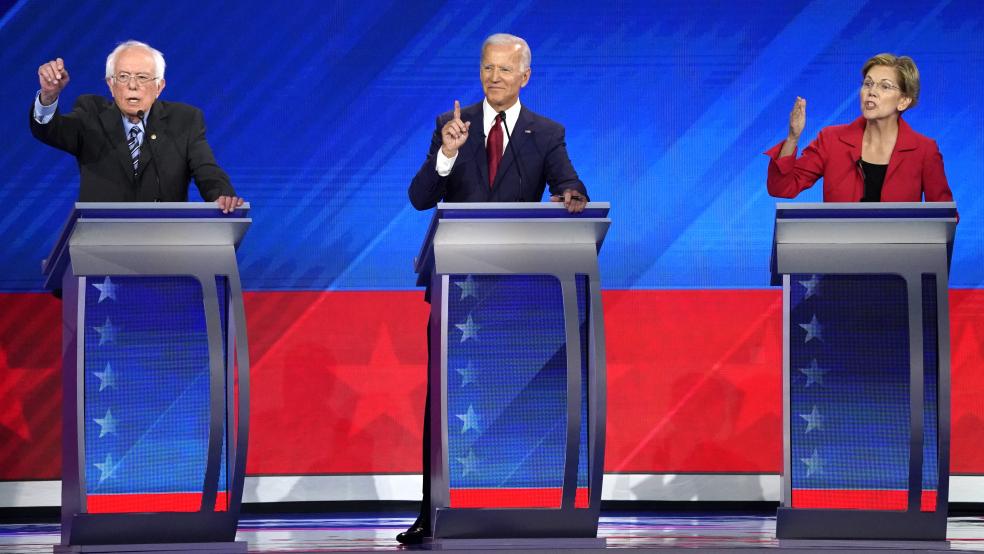Democrats are set to hold another presidential primary debate Wednesday night, and if the pattern from past debates holds true, we’ll likely hear the 10 candidates on stage talk a lot about health care, environmental policy and social issues — and nary a word about the national debt and federal deficit.
Yet as The Wall Street Journal’s Kate Davidson and Tarini Parti wrote Monday, debt and deficit concerns have colored the Democratic presidential contest in a perhaps surprising way:
“Economists warned for years that persistent deficits would lead to higher inflation and rising interest rates, which would boost the cost of debt and weigh on economic growth. That hasn’t happened because U.S. bonds have remained a global safe haven for investors, leading some economists to say the government can keep up with the cost of financing more debt over time as long as the economy keeps growing.
“It is a message the Democratic presidential candidates haven’t embraced. While they aren’t actively arguing to reduce deficits, they are trying to pay for any new programs they propose, which effectively leaves budget deficits on their current path.”
Davidson and Parti note that Democratic presidential contenders have consistently pressed their rivals on how they’d pay for various proposals, even if those financing plans might not matter much to voters, who now appear to place far less importance on deficit reduction than they did six or eight years ago.
The bottom line: The deficit concerns might not carry over from the campaign trail to the Capitol, as Davidson and Parti note that politicians are likely to keep adding to the debt near-term to finance higher spending or tax cuts — with relatively little fear that voters will knock them for it. Economist Jared Bernstein told the Journal that the campaign concerns about paying for proposals was simply political theater. “None of this will really matter much until interest rates start going up,” he said. “As long as politicians can put spending on the credit card with no obvious economic consequences, it’s hard to see what keeps them from doing more of the same.”





